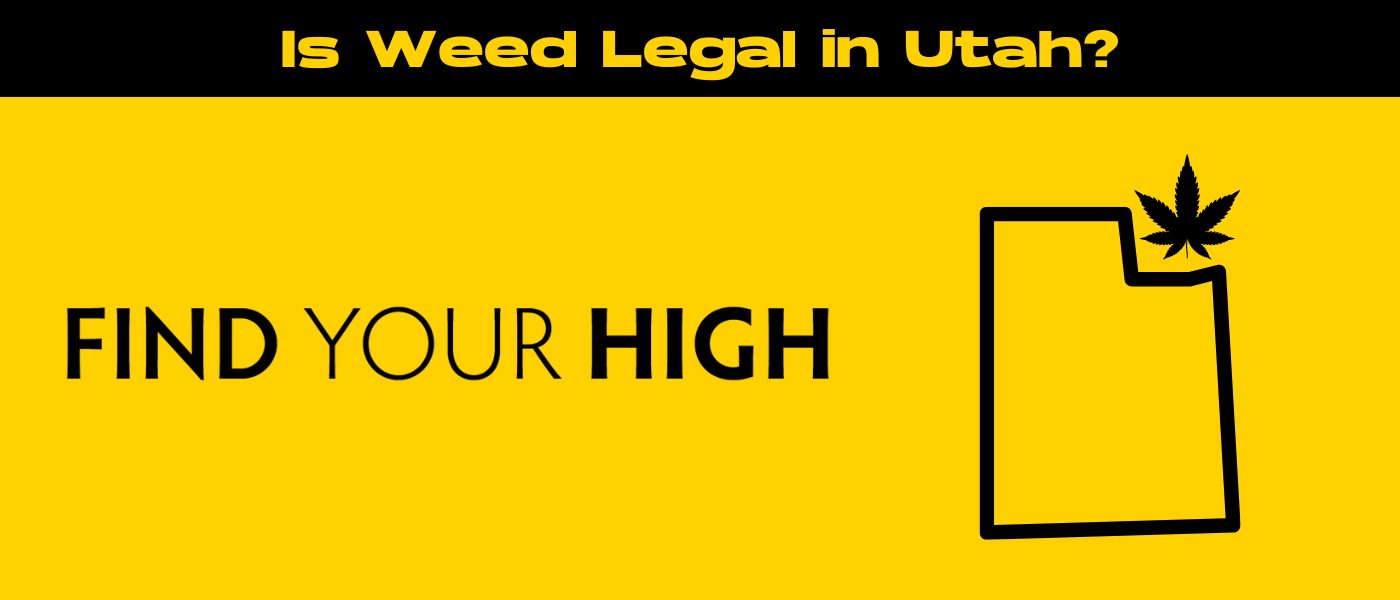As the cannabis industry continues to evolve across the U.S., Delta 9 THC (tetrahydrocannabinol) is gaining attention for both its medicinal and recreational potential. But with its rise in popularity comes a series of legal questions, especially when it comes to the state-specific rules and regulations.
In Utah, where cannabis laws are still developing, it’s important to understand the nuances of what is and isn’t allowed when it comes to Delta 9. Is Delta 9 legal in Utah? What should you know if you’re considering using Delta 9 THC in Utah?
In this blog, we’ll break down everything you need to know about the legality of Delta 9 THC in Utah, including medical use, recreational use, penalties for violations, and how Utah’s cannabis laws compare to other states. Let’s dive in!
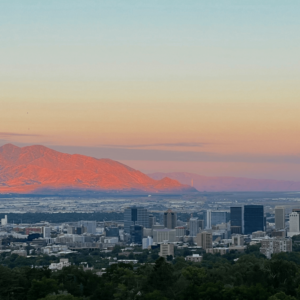
What is Delta 9 THC?
Before we dive into the legal aspects of Delta 9 THC in Utah, it’s important to understand what Delta 9 is. THC is a psychoactive compound found in the cannabis plant, and Delta 9 is the most well-known and commonly used form.
Delta 9 THC is responsible for most of the euphoric and intoxicating effects that users feel when consuming cannabis. It interacts with the body’s endocannabinoid system, specifically binding to CB1 receptors in the brain and nervous system. This interaction can lead to feelings of relaxation, euphoria, altered perception, and increased appetite.
It’s essential to distinguish Delta 9 from other forms of THC. For example, Delta 8 THC is chemically similar but has a less potent effect on the body, making it a preferred choice for some users looking for a milder experience. However, the legal status of these compounds can vary significantly from state to state.
The Legal Landscape of Cannabis in the United States
Cannabis laws in the U.S. have been evolving rapidly in recent years, but there’s still a lot of confusion around the legal status of THC products, including Delta 9.
Federal Cannabis Laws:
At the federal level, cannabis remains classified as a Schedule I substance, which means it is considered illegal for any purpose, whether recreational or medicinal.
However, in 2018, the Farm Bill made a significant shift by legalizing hemp-derived cannabis products containing less than 0.3% Delta 9 THC. This allowed for the cultivation, production, and sale of hemp-derived CBD and Delta 9 products in states where they are allowed.
Still, the federal government maintains its prohibition on marijuana, which contains higher concentrations of Delta 9 THC.
State-by-State Approach:
While the federal government bans cannabis, many states have moved toward legalization, either for medicinal, recreational, or both types of use.
Some states, like Colorado and California, have fully legalized recreational cannabis, while others, like Utah, have adopted more limited cannabis policies, particularly focusing on medical use.
Delta 9 and Utah’s Cannabis Laws
Utah has been slow to embrace cannabis, but the state has made significant strides in recent years, particularly with medical marijuana.
Utah Medical Cannabis Act:
Utah’s Medical Cannabis Act was passed in 2018, and it officially legalized medical marijuana for qualified patients in 2020. This law allows individuals with certain medical conditions to access medical marijuana products through a medical marijuana program, including THC products, through licensed dispensaries.
However, this program is strictly regulated, and only those with a valid medical card can legally possess and use cannabis.
When it comes to Delta 9 THC, medical cannabis patients in Utah can legally use products that contain this compound, provided they are purchased through the state’s licensed dispensaries.
Recreational Use:
Recreational marijuana, including Delta 9 THC, is still illegal in Utah. Possession of small amounts of cannabis plant material for personal use and without a medical marijuana card can result in fines, penalties, or even jail time, depending on the amount and circumstances.
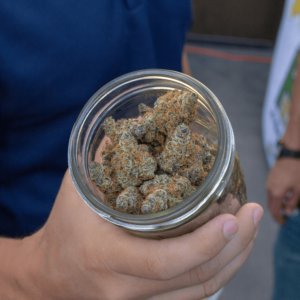
Delta 9 THC and the 2018 Farm Bill
The 2018 Farm Bill is a significant piece of federal legislation that had a major impact on hemp and cannabis products. While cannabis remains illegal under federal law, the Farm Bill legalized hemp products that contain less than 0.3% Delta 9 THC derived from industrial hemp plants.
This means that Delta 9 THC derived from hemp is legal as long as it does not exceed the 0.3% THC threshold. This provision created a legal gray area that many manufacturers have taken advantage of, producing a wide range of Delta 9 THC products for sale across the country.
In Utah, this means that hemp-derived Delta 9 products with less than 0.3% THC are legal for sale. However, the state still restricts the sale of marijuana-derived Delta 9 products (those derived from cannabis plants with more than 0.3% THC).
Is Delta 9 Legal in Utah?
So, is Delta 9 THC legal in Utah? The short answer is: it depends on how the Delta 9 is sourced (think: hemp and marijuana plants) and used.
Hemp-Derived Delta 9:
Hemp-derived Delta 9 products that contain less than 0.3% THC are legal under Utah law. This means you can legally purchase Delta 9 THC products that meet these requirements in Utah, whether they are edibles, tinctures, or vapes. However, these products must be derived from hemp, as recreational marijuana remains illegal.
Marijuana-Derived Delta 9:
On the other hand, marijuana-derived Delta 9 products (those with THC concentrations above 0.3%) are illegal in Utah unless they are used by a medical cannabis patient with a valid prescription.
Medical Cannabis in Utah: Delta 9’s Role
Delta 9 THC plays a central role in Utah’s medical cannabis program. Patients with qualifying conditions such as chronic pain, cancer, and epilepsy can receive medical cannabis products that contain Delta 9 THC, provided they have a valid medical card.
These products are typically available in various forms, including:
- Vapes
- Edibles
- Tinctures
- Topicals
However, all Delta 9 THC products in Utah’s medical cannabis program are strictly regulated. Patients must obtain these products through licensed dispensaries, whether in person or online like Hyperwolf LA, and each product must be tested to ensure it complies with the state’s regulations regarding THC content.
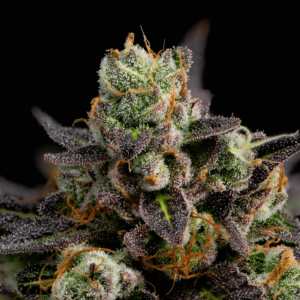
Recreational Use of Delta 9 in Utah
As of 2024, recreational use of Delta 9 THC remains illegal in Utah. The state has not passed any laws that would allow adults to use cannabis for recreational purposes, and possession of small amounts of marijuana or Delta 9 can lead to legal consequences.
Legal Penalties for Possession:
- Less than 1 ounce: A class B misdemeanor, which can result in fines and potential jail time.
- 1 ounce or more: A class A misdemeanor, leading to more severe penalties.
Delta 9 THC vs. Delta 8 THC: What’s the Difference?
You’ve probably heard about Delta 8 THC, another cannabinoid that’s similar to Delta 9 but with some key differences.
Key Differences:
- Psychoactive Effects: Delta 8 is less potent than Delta 9 and tends to produce milder, less intoxicating effects.
- Legality: Delta 8 is often sold as legal, but its legal status is also somewhat gray. While the 2018 Farm Bill legalized hemp-derived cannabinoids, some states have moved to restrict Delta 8 sales.
In Utah, Delta 8 THC is legal as long as it meets the same hemp-derived, less-than-0.3% THC requirement as Delta 9. However, it’s important to remember that Delta 9, when derived from marijuana, is still illegal.
THC Limits in Hemp Products in Utah
Utah enforces strict regulations on the THC content in hemp-derived products. According to state law, any product that contains more than 0.3% Delta 9 THC by weight is considered marijuana and is illegal.
Key THC Limits:
- Hemp-derived products: Must contain no more than 0.3% Delta 9 THC
- Lab testing: All products must be tested for compliance with THC limits, and product labels must clearly state THC content.
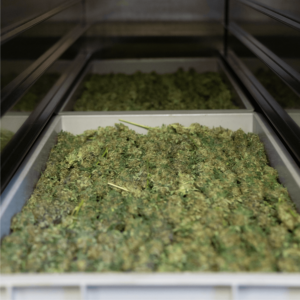
The Risks of Purchasing Delta 9 THC in Utah
While Delta 9 THC products are available in Utah, it’s important to purchase them from licensed and reputable sources. Unregulated products can pose several risks, including inaccurate THC content, contaminants, or dangerous additives.
What to Look For:
- Third-party lab testing to verify THC content
- Clear product labeling showing compliance with state regulations
- Licensed dispensaries that follow Utah’s cannabis laws
Penalties for Delta 9 Possession and Use in Utah
Possessing Delta 9 THC in Utah without a medical prescription can result in significant legal penalties. Even possessing a small amount can lead to fines, probation, or jail time.
Penalties for Possession:
- Less than 1 ounce: Class B misdemeanor (fines, jail time)
- 1 ounce or more: Class A misdemeanor (more severe penalties)
How Delta 9 is Regulated in Other States
Utah’s approach to Delta 9 is more restrictive than some states, like California or Colorado, where recreational cannabis use is fully legal. However, Utah’s medical cannabis program offers a significant compromise for patients needing access to THC products.
Comparison to Other States:
- California: Full legalization for recreational and medicinal use
- Colorado: Similar to California, with a robust recreational market
- Texas: Very limited medical cannabis program with strict regulations
The Future of Delta 9 Legalization in Utah
While recreational cannabis use remains illegal in Utah, public opinion is shifting. Advocacy for cannabis legalization is gaining momentum, and the state could see changes in its cannabis laws in the future.
Potential Changes:
- Public support for recreational legalization may lead to ballot measures
- Medical cannabis program expansion, possibly including more Delta 9 options
Conclusion
Delta 9 THC is a complex issue in Utah, and its legality is subject to a combination of state and federal regulations. While it is legal in hemp-derived products under 0.3% THC, marijuana-derived Delta 9 remains illegal unless prescribed through the state’s medical cannabis program.
As cannabis laws continue to evolve, it’s important to stay informed and adhere to local regulations to avoid legal issues. Whether you’re a patient seeking relief or a consumer exploring the world of cannabinoids, understanding the legal landscape in Utah is key to navigating this exciting and changing industry.
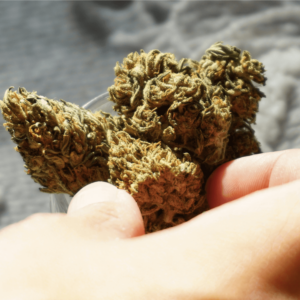
Frequently Asked Questions
1. Can you get Delta 9 in Utah?
Yes, you can legally obtain hemp-derived Delta 9 THC products in Utah, as long as they contain no more than 0.3% THC by weight. These products, such as edibles, vapes, and tinctures, are available in stores and online. However, marijuana-derived Delta 9 THC remains illegal unless used by a qualified patient through Utah’s medical cannabis program. For recreational users, it’s important to note that possessing Delta 9 THC in amounts beyond what is allowed for medical use can lead to legal penalties.
2. In what states is Delta 9 illegal?
Delta 9 THC is illegal in several states, primarily due to its status as a psychoactive compound and its connection to marijuana. States where Delta 9 remains fully illegal include:
- Idaho
- Wyoming
- Nebraska
- Kansas
In other states, Delta 9 THC may be restricted to medical use, or its legality can depend on the source (hemp vs. marijuana). For instance, Delta 9 THC derived from hemp is legal under the 2018 Farm Bill in most states, as long as it contains 0.3% THC or less. However, Delta 9 derived from marijuana remains illegal in many regions unless the state has legalized cannabis for medical or recreational use.
3. How much Delta 9 gets you high?
The amount of Delta 9 THC needed to experience its psychoactive effects varies from person to person. Factors such as body weight, tolerance, and individual metabolism all play a role. On average:
- Low dose (2.5-5 mg of Delta 9 THC): This can provide a mild euphoria and relaxation, with little to no impairment.
- Moderate dose (10-20 mg of Delta 9 THC): This may induce more noticeable effects, such as increased appetite, relaxation, and a more pronounced sense of euphoria.
- High dose (30 mg or more of Delta 9 THC): Higher doses can lead to stronger psychoactive effects, including altered perception, drowsiness, and sometimes anxiety.
For beginners, it’s recommended to start with a small dose and gradually increase to find the optimal amount.
4. Does Delta 9 show up in a drug screen?
Yes, Delta 9 THC can show up in a drug test. Most standard drug screens, such as those used for employment, detect the presence of THC metabolites (the substances your body produces after processing THC), which can remain in your system for a period of time. The detection window depends on several factors:
- Occasional users: Delta 9 THC may be detectable in urine for up to 3-4 days.
- Frequent users: For those who use cannabis regularly, THC can be detectable in urine for up to 30 days or longer.
- Hair tests: Delta 9 THC can be detected in hair follicles for up to 90 days.
If you’re subject to drug testing, it’s important to be mindful of the potential presence of THC in your system, even if you use hemp-derived products.
5. How does THCa Flower compare to Delta 9 THC in Utah?
THCa Flower is non-psychoactive in its raw form and only converts to THC when heated. In Utah, where Delta 9 THC is highly regulated, THCa Flower could be an alternative for those seeking non-intoxicating cannabis options. However, it’s important to confirm state laws regarding the legality of THCa Flower, as regulations may vary and impact how it can be used or purchased.




